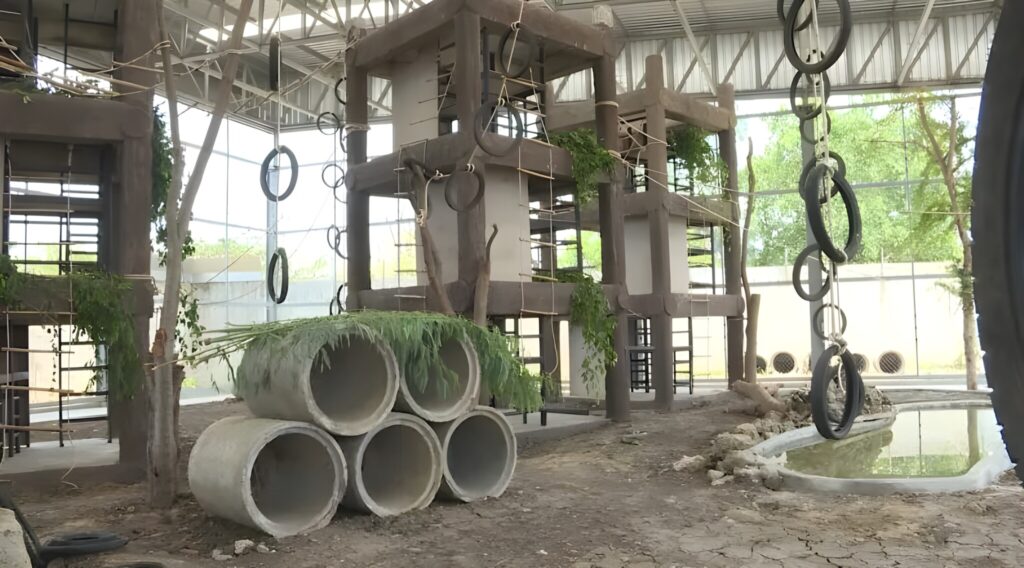A special operation to capture, castrate and relocate macaques from the city to a temporary sanctuary has been launched in Lopburi, a town suffering from an overpopulation of wild monkeys.
Lopburi authorities have launched a special operation to relocate wild monkeys roaming the city to a temporary sanctuary. The short-term measure to combat monkey overpopulation comes after numerous incidents of monkeys snatching food from passers-by, some resulting in injuries.
The monkey capture operation in Lopburi has officially begun. Initially, 25 monkeys will be captured to test the newly built cages at the Pho Khao Ton monkey orphanage. The National Parks Department estimates that 2,200 macaques live in the centre of Lopburi, posing a threat to people and businesses in the area.
Large cages have been set up in front of the Lopburi Asia Hotel and King Narai’s Palace. Small pieces of food, such as peanuts, are scattered to attract the monkeys to the cages and keep them inside longer.

At least 50 people from the local administration and the National Parks Department are involved in capturing and relocating the monkeys.
The operation faces two main challenges: the monkeys’ intelligence and the dominant behaviour of some of the troop leaders. To address the latter problem, authorities are capturing and removing the dominant monkey so that it does not prevent other macaques from entering the cages.
Some of the monkeys caught have already been castrated, as evidenced by tags on their chests. These monkeys will undergo a medical examination before being placed in the cages. Those not yet castrated will be prioritised for capture and the procedure.
Heading the monkey capture operation, Lopburi Mayor Jamroen Salachip said monkeys are quick learners, so the capture sites need to be changed regularly. Close attention is being paid to monkeys that have separated from the main group near Phra Kan temple, as the macaques there immediately threaten locals.
The owner of a nearby coffee shop, which has been in business for more than ten years, recognises the monkeys’ inherent mischievous nature, especially given their growing population. However, the woman emphasises that finding ways to coexist with them is essential.

The first batch of monkeys, estimated at 25 individuals, will undergo a seven-day cage testing phase to assess various aspects, including feeding and behaviour modification. Once the phase is completed, the remaining monkeys will be captured and housed in cages.
The equipment installed in the cages is designed to divert the monkeys’ attention from trying to escape and attract the macaques to be active,’ explained Pattarapol Mani-orn, a veterinarian with the Pattarapol National Parks Department.
In addition, the diet plan is gradually being adjusted as these monkeys have become accustomed to human food over the years, which has led to nutritional problems. The macaques’ daily diet includes leafy greens rich in fibre.
Work is underway to speed up the preparation of the remaining cages for operation. Five cages are expected to house 3,000 monkeys once completed.
Residents are donating feed for the macaques. However, more funds are needed to buy feed and maintain the facility,’ said Lopburi Mayor Jamroen Salachip.
More Articles Here
More Articles Here










